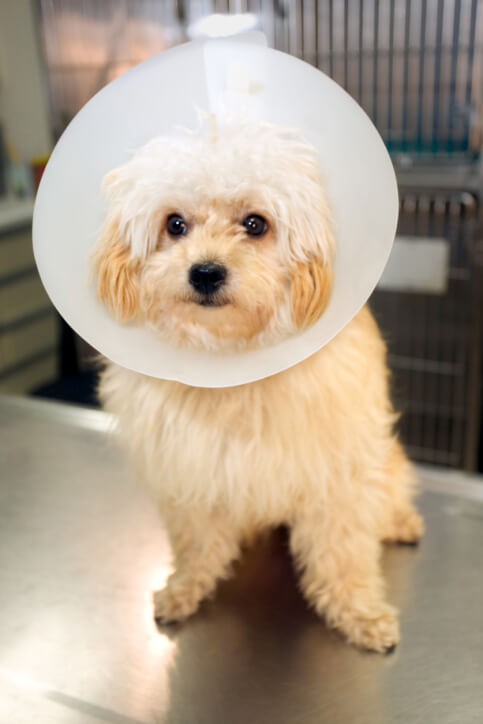Did you hear our vet Dan talking to Carolyn Stewart on U105 on Monday 9 September about neutering our pets? In case you missed it, we have summarised the important points here. Of course, if you have questions which this post doesn’t answer, get in touch and we will be happy to help.
Neutering is generally a day procedure for both cats and dogs. Whilst it is a bit more invasive in females, all pets will be able to go home the same day and carry on a normal routine, albeit with limited exercise for a while.
Cats
• We recommend neutering kittens at 16 weeks old and before they are allowed to go outside.
• It is responsible cat ownership to have your pet cat neutered – we support a number of very dedicated, local cat rescue charities, but they are inundated with unwanted cats and kittens and are struggling to keep up. If everyone does the responsible thing and neuters, the unwanted kitten problem will quickly be resolved.
Dogs
• The decision on when to neuter male dogs should be made after a discussion with your vet.
• Male dogs neutered at a younger age have a lower risk of prostate and testicular cancers and anal adenomas in later life.
• Neutering will not always alter behaviour in male dogs; however the younger it is done the more likely it is to have an effect on hormone driven behaviours.
• Bitches do not need to have their first season or a litter of puppies before neutering. You should discuss the timing of the procedure with your vet.
• Neutering at an earlier age reduces the risk of illnesses such as mammary tumours and pyometra (a womb infection) in later life.
• If your female dog is a house pet, it is sensible to have her neutered – she will spot blood around the house during a season; you may have unwanted interest at your home from local male dogs and your female dog may even try to escape during her seasons.

